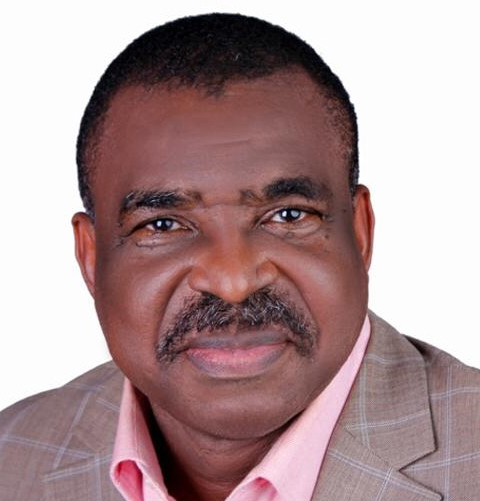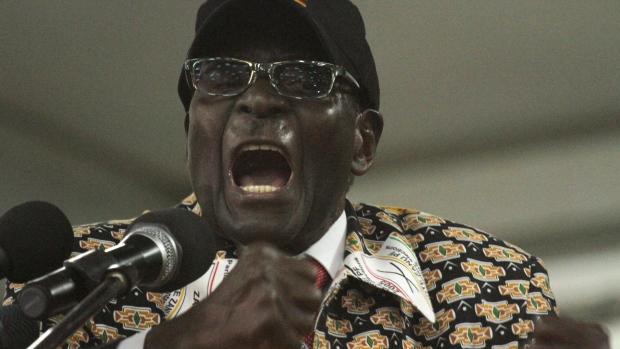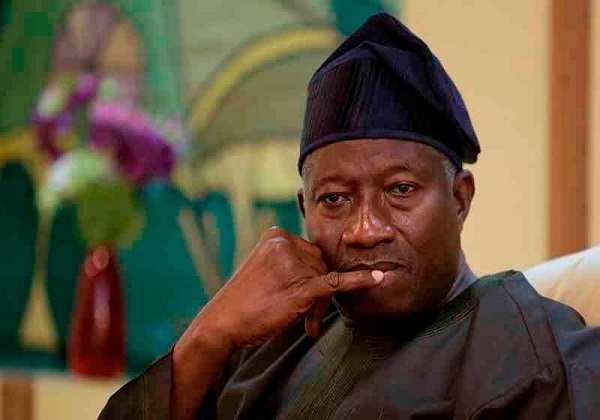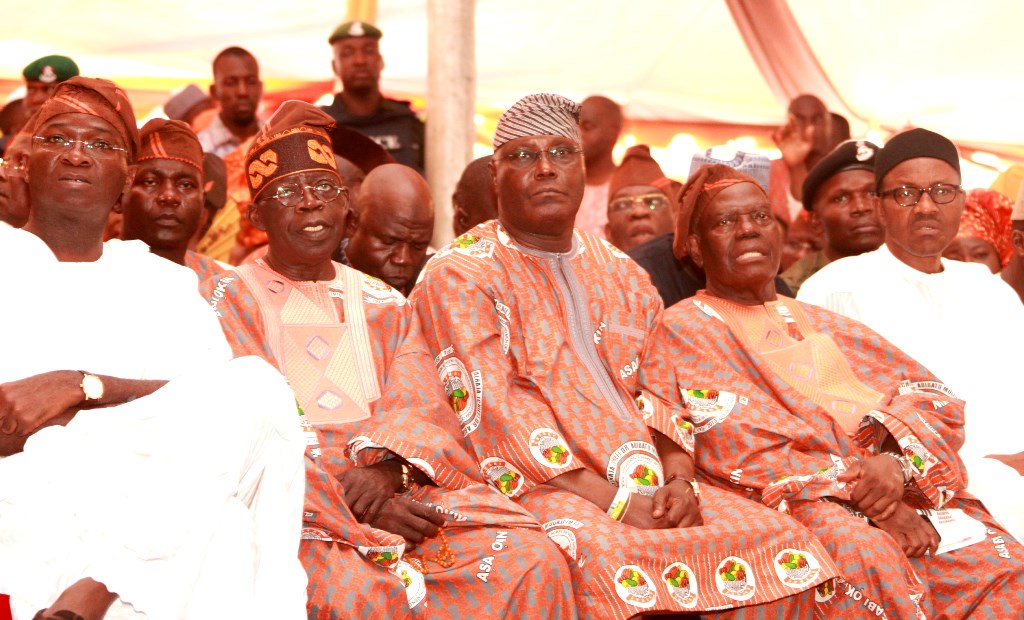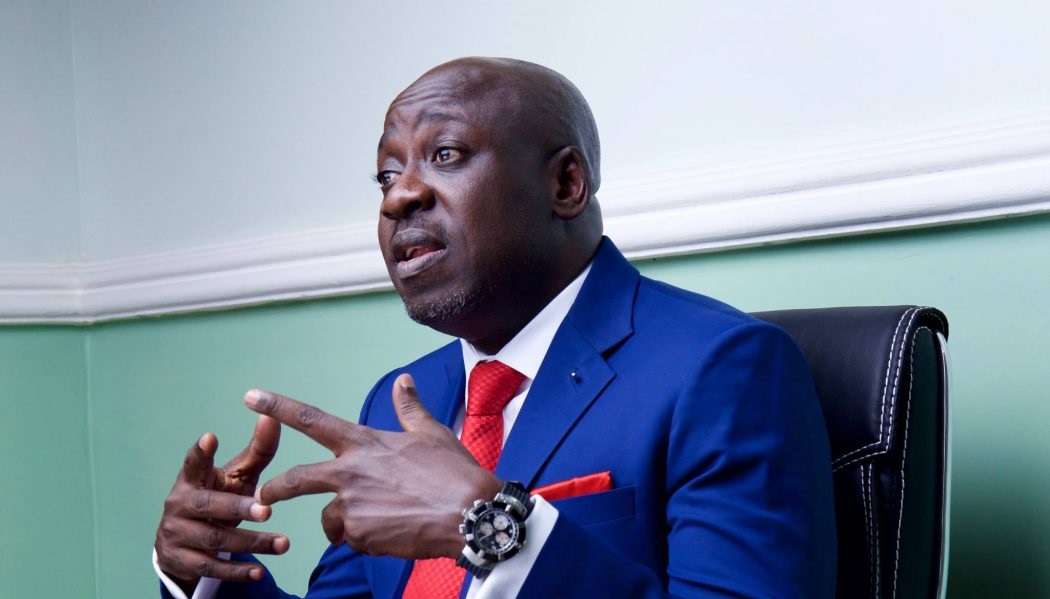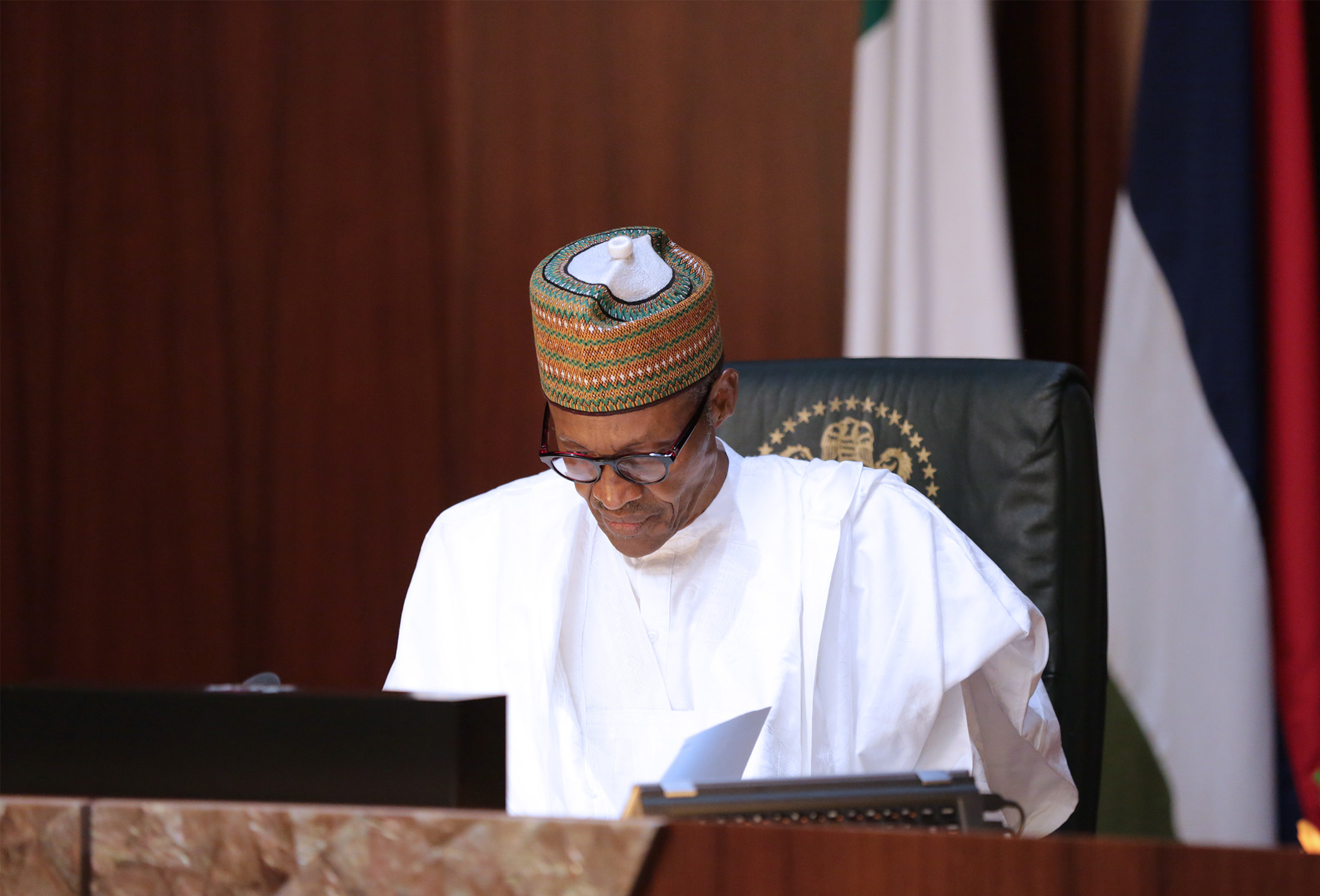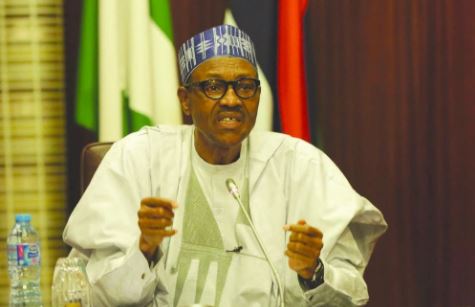The road to justice may be very long, especially if the process of delivering it is long drawn out, but no matter how long it takes, justice is sweet when it is finally done.
In a chat on the whatsapp blog of my secondary school, Ekuku Agbor Grammar school old students association, where we are currently contemplating what development project to embark on to help our alma mata, one of us noted that the last time that we were all together was school some 37 years ago.
And it struck me at that point that it has been 37 years since we left secondary school, and Robert Mugabe of Zimbabwe had been president of his country, all of that lengthy time until November 21, 2019. After 37 years of going our separate ways, some of us may not recognize each other anymore because age and tough circumstances might have taken their toll.
And that’s in tandem with the admonition of the literary icon Ngugi Wa Thiog’o who noted in his epic novel, WEEP NOT CHILD, ” that time and bad condition do not favor beauty”.
Advertisement
In the light of the above dictum, it is incredible that Robert Mugabe managed to remain the ruler of his country for nearly four decades defying the natural cause of change which is supposed to be the only constant phenomenon in life.
Were he not ousted on Tuesday, 21/11/19, 93 years old Mugabe might have remained on the saddle as president until he enters his grave.
Co-incidentally, just as the momentous casting down of Mugabe was unfurling in Zimbabwe, Faure, the son of the former president of Togo, Gnasingbe Eyedema who has replaced his father as head state was visiting our president, Muhammadu Buhari in Aso Rock, Abuja.
Advertisement
Being another family that may be aiming to make Togo a family heirloom and fiefdom , there are already rumblings in Faure Eyedema’s home country as citizens are becoming irritated by his alleged uninspiring leadership.
The Mugabe effect, which is the art of shoeing off sit-tight rulers may become contagious as South African president Jacob zuma’s position is now under threat and therefore tenuous because he is also an octogenarian who has allegedly become a liability to that country.
Aside from the huge corruption indictments hanging on his neck, in a video clip which is currently circulating in the social media , Zuma could not even coherently read out Genesis 1:1 in the holy bible as he was pathetically stumbling over the words.
And that suggests that like Mugabe, geriatric psychosis may be taking hold of Zuma.
Advertisement
Despite his failing faculties, he too may be scheming to remain in power perpetually.
But l don’t think South Africans would suffer fools like Zimbabweans did with Mugabe.
The ability to leave when the ovation is loudest is the difference between the two despotic southern African region presidents earlier listed and the late Nelson Mandela, who voluntarily served as South African president for only one term even though he was constitutionally entitled to two terms.
And that’s precisely the reason the man fondly referred to as Mandiba has remained the leadership icon of all times.
Advertisement
In terms of integrity and good leadership, the only man who comes close to Mandela’s record is Kenneth Kaunda of Zambia who was president for 24 years and at the time he was leaving office he reportedly had only $8,000 in his bank account.
Another sit-tight ruler like Mugabe is Teodoro Obiag Nguema Mbasogo of Equatorial Guinea who has been the president of oil rich tiny West African country since 1979. Jose Eduado Dos Santos, president of Angola who was presiding over the affairs of the equally rich southern African country from 1979 up till last year as well as Paul Biya , president of Cameroon, who has been ruling Nigeria’s neighboring country since 1982, are the remaining sit-tight leaders in africa who have been heads of state in excess of 35 years.
Advertisement
But the day of reckoning for these monocratic leaders would be sooner than later.
And more often than not, democracy consciousness which is stirred by Non Governmental Agencies, NGOs from advanced democracies, would trigger clamor for change from the old order.
Advertisement
Strangely, some of the policies instituted to protect and preserve democracy are what some autocratic rulers exploit to self perpetuate.
In this instance, the wisecrack “The road to disaster is often paved with good intentions” rings true.
Advertisement
Take the Southern African region for example. One of the treaties entered into by countries in the region like South Africa, Zimbabwe, Namibia, Angola etc is that any attempt to plot a coup to remove any head of state of any of the participating countries by the military will be met with the full weight of the joint military forces of member countries which will attack and dislodge the coup plotters.
That explains why serious efforts were made by the Zimbabwean military authorities not to refer to the military take over of power as a coup, so that the letter and spirit of the treaty may not be invoked.
The treaty which is aimed at discouraging coups which had become rampant in other African countries like Nigeria with calamitous consequences that mostly hindered socioeconomic development, was deemed dangerous and therefore to be averted.
But just as policies formulated with good intentions are often fraught with negative outcomes, the anti coup policy tend to serve as protective shield for sit-tight heads of govt who can’t be removed from office except through democratic processes which are cumbersome and therefore could be long drawn.
Since they cant only be easily impeached or voted out via the ballot box, despotic leaders abuse their power of incumbency by leveraging their position to manipulate their country’s statues books by tinkering with tenure clauses in order to self perpetuate.
Hence the SADC region has been unfortunate to be led by the likes of Eduado Dos Santos who reigned in Angola for 37 years (from 1979 to last year when he stepped aside) just like Mugabe who also served for 37 years until he was ousted this November.
Another blithe on Africa is that while ten of the twenty world’s longest serving leaders are from the continent, no African country is amongst the world’s top twenty richest in the world.
So African countries only lead in negative development index like: the darkest continent in the world , having the largest number of hideous diseases such as AIDS, blindness,and high infant and maternal mortality rate etc.
Ugandan president, Yoweri Museveni has been ruling since 1986, so also is Omar Al-Bashir of Sudan who has been holding sway since 1987, as well as Idris Derby who has been on the throne in Chad since 1990.
Sadly most of the leaders who seem to have been glued to the throne of power have been presiding over the under development of their countries and they do not seem to have plans to vacate the seats any time soon.
But given how Mugabe just got disgraced out of office in Zimbabwe, the aforementioned sit-tight leaders may be literarily ‘shitting in their pants’ now because the long suffering men and women of their respective countries may soon call them out as the Zimbabweans just did.
The chance of their being shown the red card is accentuated by the speed at which democratic tenets are being imbibed in Africa.
With the increasing political awareness quotient amongst African people , a new dawn may be breaking on the continent as the sun appears to be setting on leaders who nurse the vaulting and obnoxious ambition of spending their lifetime on the throne of leadership of their countries.
Mobutu Seseseku of Congo, was also a sit-tight head of state who died in disgrace. Today all the assets and obscene wealth that he illicitly amassed are rotting away with no inheritors. With the sad experience of Mobutu, it would have been rational to expect that other African heads of state, and perhaps public office holders coming after him would learn from his miserable experience and desist from toeing that ignominious path.
But sadly, it would appear that some human beings have short memories , and more so in Africa because the absurd and tragic comedy of people seeking life time presidency appear to be an African phenomenon.
As the pitiful and disgraceful outcome with Robert Mugabe in Zimbabwe has demonstrated, after the rain, the sun always shines again as lady justice,(blind to prejudices) brings down the sword of justice on the villains.
This brings me to an interesting perspective on the obligation of the leaders in govt to citizens. This was shared by John Montana, a Doctor of Jurisprudence from Colorado, USA, who was a panelist at the Institute Of Information Management, IMM summit in Abuja recently.
In the course of the panel discussion themed; Effective Information As A Tool For Bridging Information And Communication Gap Between The Government And The Governed, the Jurisprudence and Information management specialist posited that it is pragmatic for a country’s leaders to properly identify their constituencies by viewing citizens from the prism of being customers.
Given that dynamic companies treat their customers as kings, the perspective is quite welcoming and illuminating. The information management expert illustrated his unique point of view with the analogy of a bank and its customers. He argued that customers are availed every information they need at every point in time because banks value them greatly.
But not so for irresponsible rulers , who ignore the wishes and expectations of the citizens of their countries that should ideally be their customers.
Since they operate their personal and narrow agenda, instead of leading their country men and women on progressive growth path, they engage themselves in primitive acquisition at the expense of citizens who are faced with arrested development owing to tyranny and corruption.
According to him, although justice may take long, it is advisable that citizens gather facts and keep records that would be used to nail such despots when their cups are finally full as the case has been for Seseseku of Congo, Mugabe of Zimbabwe and other tyrants before them.
He noted that without facts that emanate from records which form the substance of evidence, some of the leaders who have inflicted horrendous pains on the citizens of their countries, may escape justice.But if Information managers play their roles effectively by obtaining and saving information, there will be records that will enable justice take its course, no matter how long it takes.
Apart from enjoying the privilege of being conferred with the honorary fellowship of the Institute of Information Management, FIIM, as part of the conference activities, my takeaway from the event is that progressive govt’s should treat citizens like customers at all times and not only during electioneering activities when they are wooed with pecuniary benefits to gain their votes.
Mugabe has just had his day with justice, albeit in a benevolent manner as he has been given a soft landing by being allowed to resign and enjoy prosecution immunity for himself and his wife. If retributive Justice were to be applied, he could have spent the rest of his life in jail for corruption and crimes against humanity or be assassinated in a coup detat which incidentally has been the lot of many dictators.
In the coming days, months and perhaps years, sit-tight heads of state like Paul Biya etal that are yet to face justice, will ultimately be faced with nemesis sooner or later. Unless they urgently plan their peaceful exit and execute same now, retributive Justice awaits them, wily-nilly.
And when that looming doomsday comes, today’s oppressors will become tomorrow’s scums as they would end up weeping and gnashing their teeth like their hapless victims of yesteryear.
According to SAINT-JUST in the novel Darkness At Noon by Arthur Koestler, NOBODY CAN RULE GUILTLESSLY. So nobody expects African leaders to be saints but they should strive harder so that on a balance of scale, their leadership good can outweigh their guilt.
To that end, if leaders like president Julius Nyerere of Tanzania could be acclaimed for leaving lasting positive legacies and the current president of that country, John Magufuli is following similar path way,such that slowly but surely he is liberating Tanzanians from poverty and under development, why can’t others emulate them?
Is it not William Shakespeare that wrote in his famous book, MACBETH that “THE EVIL THAT MEN DO LIVES AFTER THEM?
As a testament to Shakespeare’s admonition, the man known as the ‘butcher of Sarajevo’ Ratko MLadic who committed atrocities against his people during the Bosnian war, recently faced his day of reckoning as the war crimes panel at The Hague recently sentenced him to life imprisonment.
Such is the inevitable miserable end of those who try to play God-by oppressing their people as if they have the power of life and death when occupying positions of authority.
Given what we now know about the gloom and doom that await leaders that exploit and oppress their people, what can they do to avert the pain and disgrace that awaits them like sentinel at the twilight of their lives?
They can simply CHANGE from pillaging the treasuries of their countries and brutalizing or emasculating their people through maladministration, to treating citizens of their countries with respect and dignity the way banks and other Fast Consumer Moving Goods, FMCG firms regard their customers as valuable stakeholders who must be treated like kings.
It’s easier said than done, right?
So the easier choice is to continue to revel in oppressive rule. But what profit would it be for a public servant- a president, governor, minister, commissioner or director general-to end up spending the evenings of their lives in and out of courts or jail houses as retributive justice for their tyranny and impropriety while in public office?
That is a billion Naira question which African men and women placed in positions of authority must ask themselves and strive to find answers to, as it would help them in inoculating themselves against oppressive and kleptomaniac tendencies.
Magnus Onyibe, a development strategist, an alumnus of the Fletcher School of Law and Diplomacy and former commissioner in Delta State cabinet, sent this piece from Abuja. Interested readers can send feedback to www.magnum.ng
Views expressed by contributors are strictly personal and not of TheCable.
